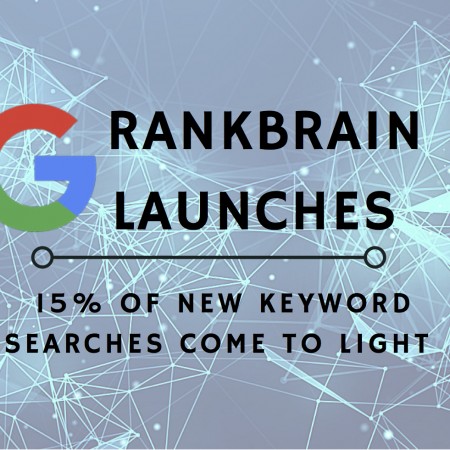7 Ways Content Is Setting the Trends for SEO & Google Algorithms
There’s just no veiling this fact, folks: Content has been king for a while now. Bill Gates forecasted this all the way back in 1996. In 2013, Entrepreneur told us to ditch the cold call sales technique and invest in blogs and Twitter instead. Notable sources like Copyblogger forecasted 2013 would be the year of the writer. There are over 6 billion web pages in existence, both active and inactive. About half a million new pages are created and published daily. That’s a lot of web content to sift through, and Google is there to make sure specific pages get to the top. That begs the question: How is content impacting it all? How Is Content Setting the Trends? So how exactly is content setting the trends for how Google looks at, ranks, and values their indexable pages? Worthy question. Let’s take a dive through that sea! ? [bctt tweet=”About half a million new web pages are published daily. That’s a lot of content to sift through, and Google is there to make sure specific pages get to the top. ? @JuliaEMcCoy asks: How is content setting the trends?” username=””] 1. People Want Relevancy They want topics relevant to their likes, as well as topics that flow with current trends. If you’re still busy waxing eloquent on how amazing Brave was while everyone else is going on about Frozen, you’re like the person who wears socks with their sandals. Relevant topics are the only way you are going to gain and maintain readership. This might seem a little frustrating, especially if your topic doesn’t seem to be the most relevant out there, but finding ways to make it mesh with its surroundings will help immensely. You can use some SEO copywriting tips such as creating an eye-catching title, having a strong start to your content and having a strong call to action. This will help readers feel your topic is relevant, get you further up on that Google search page, and, in the end, get you more readers. 2. People Want Content Content is important to the average web browser and internet user. Information — literally on any topic under the sun — is all around us and out there for the curious. We can google any topic or question and get an answer in seconds. In today’s information explosion, good, trustworthy content matters. It satisfies our curiosity, answers our questions, alleviates our fears, and eases our pain. Readers like to get information quickly, but they also want to know they’re receiving it from a knowledgeable source. If your content is too short, people may suspect you’re not as knowledgeable as you seem, especially in the age of article regurgitation. It seems everyone is an expert on spitting out the informational bare bones, but not many are experts in delving into the juicy meat of a subject. “But what about those casual browsers?” you ask. By offering a heartier wealth of information, you have the potential to turn those casual readers into intent readers, hungry for more information. 3. People Love In-Depth Discussions You’re used to hearing that you need to have short and concise blogs to attract more readers, but the reality is Google ranks blogs with higher word counts and quality content. This is because they believe people are more likely to stick with an article that’s longer than the short, concise article we’ve all been told is important. People want to see that lengthy post. They may not read every single word, but they’ll believe you are the authority on your topic if the post is longer. That might seem strange, but think about how you feel when you search for an article. Do you prefer a site that seems much more knowledgeable, with lengthy descriptions, or one that barely gives any discussion on the topic? 4. Quality Is Mega-Important in the Game of Google While long, in-depth content is a factor in ranking with Google, another important factor is the quality of your content. If all you do is write specifically for the search engine and sacrifice quality in hopes of getting more viewership, you’ll find that you rank a lot lower than you initially thought you would. Google wants to make sure the content they rank is quality, something that is filled with interesting and engaging information. Whatever your niche, make your content incredibly valuable to people interested in your product or topic. Give facts that aren’t too well known, try to stay away from the generic, overdone articles. Find ways to implement relevant pop culture references to connect what you are discussing with something that the majority of people love. If you are a little confused as to what’s relevant, just pop onto Facebook, wade through all the Buzzfeed quizzes and find the stuff people are posting about. When it comes to finding your site at the top of a Google search, the more quality blogs, or content, you have is important. It is another part of the new Google algorithm, according to Jeff Quipp over at the Huffington Post. You also want to be seen as an authority on your topic. Need more insight on ranking in the top of Google? Get our in-depth checklist right here. 5. Authorship Matters In the game of Google, you rank, or you lose. There is no middle ground. Well, OK, it isn’t as intense as Game of Thrones says it is, but close enough. You want your page to rank in order to get those readers. Readers don’t like to sift through page after page to find what they are looking for, so eventually they will give up the further down the search page they go. If Google sees you as an authority in your field, they will rank you higher than those whom they do not deem to be experts. By combining quality content with Google authorship, your page will surely find itself ranking high. 6. Blogging Is Important for Gaining (and Keeping) Customers … Read more









